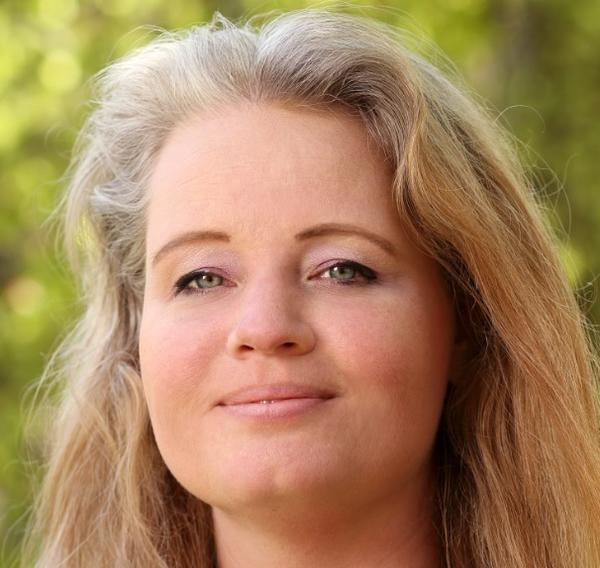"The complexity of human decisions was underestimated.”

What power do algorithms and artificial intelligence (AI) have over areas of life like education? In 2019, Prof Dr Katharina Zweig was our guest on the EduCouch at Frankfurter Buchmesse to discuss this topic. A university professor(opens in a new window) and head of the Algorithm Accountability Lab in the Department of Computer Science at TU Kaiserslautern research university, she is also author of the bestselling book on this subject: “Ein Algorithmus hat kein Taktgefühl” (“An Algorithm Has No Tact”) (Heyne, 2019). Time for an interview!
You are frequently invited to panel discussions and conferences on algorithms and AI. Are education-related questions also broached in this context? And, if so, what are the most pressing questions?
The most pressing questions don’t really concern education but rather the question of regulation on the one hand and support for innovation in AI on the other. These are followed by questions regarding changes in the world of work and how lifelong learning can be implemented sensibly.
When it comes to the subject of AI, people like to discuss job losses, which also affect university graduates. Which tasks and qualifications specific to teachers and lecturers might be replaced digitally in the future?
You always see these things in the United States – where, however, there are also different systems in many fields. The North American judicial system, for example, is a case-based system. Until now, many American lawyers began their careers by finding related cases in the archives for experienced colleagues. Increasingly, AI systems can take over this sort of work. This means that fewer young lawyers are needed. In the case of other human decisions, AI systems were implemented prematurely as an alternative: Also in the US right now, one risk assessment system after another is being found to be unsatisfactory, including for example a system that sorts criminals based on their supposed risk of recidivism and a major online retailer’s rating system. I think that in these cases the complexity of human decisions in uncertain situations was vastly underestimated. Machine learning techniques – which underpin artificial intelligence – are not adequate here.
Asked in a more positive way now: Where can AI provide support for instructors in schools and universities and improve the learning process?
This issue often concerns smart tutoring systems, which promise to put together individual learning content for each learner. I don’t see any real potential here at the moment. It’s enough to remember briefly how machine learning works: We provide the statistical systems that underpin it with many situations – in other words, data – and the respective assessment of each situation, so the system “learns” from them. For example, we give the program various answers from exams and the corresponding evaluation: This is a good answer, this is a bad answer. The system then searches the texts for references that were included ideally in all the correct answers and those that only came up in the wrong or bad answers. The system then saves these “learned” patterns. The next answer can then be evaluated based on whether it contains more patterns from good or from bad answers. However, the same thing applies here too: For some subjects, it’s relatively easy to identify whether a student has given the correct answer – often you don’t even need an AI system for this, simple databases are enough. But students can get something wrong in so many different ways that it will be impossible to gather together enough related learning material for the computer. Moreover, individual learning outcomes also depend strongly on the group, the relationship with the instructor and so on – aspects that AI also tends to weaken. As a result, with the exception of a few specialist fields, I don’t see any major demand or use for AI-based tutoring systems in education.
With Frankfurt EDU(opens in a new window), Frankfurter Buchmesse offers an international platform for innovative concepts, content and technologies from the education sector. As an expert, what new products do you expect to find there in the coming years?
There are many great concepts – yet there’s a lack of will to get them up and running in schools and universities. That needs to change.
Thank you very much for speaking with us!
(The interview was conducted by Frank Krings, PR Manager at the Frankfurter Buchmesse)
Prof. Dr. Katharina Zweig is also represented on LinkedIn(opens in a new window).
